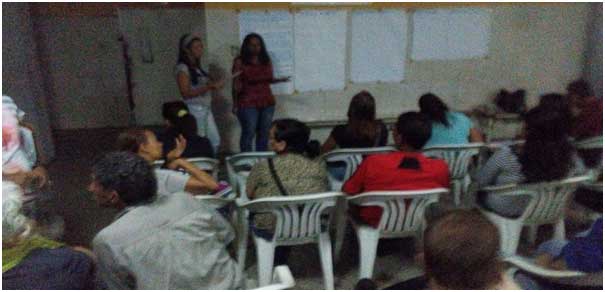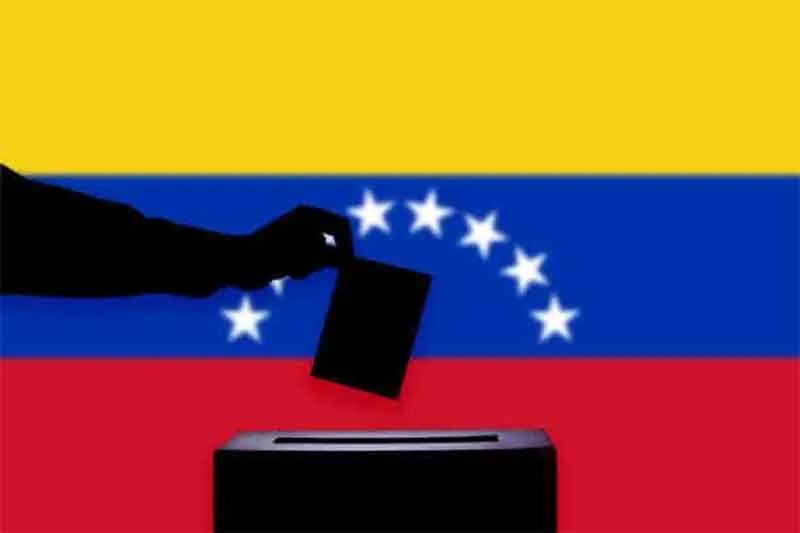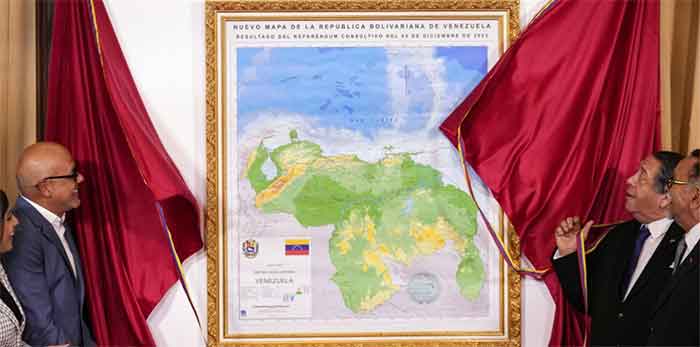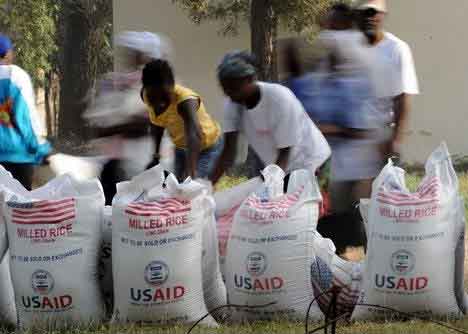Dateline: Venezuela, April 26-May 5, 2019.
Background: This is my fifth visit. My first visit was in 2005. So I’m able to find the changes.
The mainstream media (MSM) are creating an image of desperate suffering, hardship and chaos.

Supermarket shelves in Caracas
But I found food in restaurants, and food stores with shelves full of foods.

Fruit for sale
Moreover, food is provided through CLAP (Spanish words for Local Committees to Supply the People). Every two weeks bundles of basic foods like rice, beans, oil, sugar, etc. go directly to households. There is enough food in the bundle to survive on.

CLAP food packages
At the state of Vargas, we saw a community of apartment buildings that house 3,200 people.

Vargas residents greet internationals (wearing caps)

Housing in Vargas
The buildings include childcare, cooking and dining, meeting and educational space, sports courts, a community radio station, a long list.
Members, literally of every adult age, of the popular classes are joining the militia. There are about as many women as men. Even people who are quite old, many in their seventies, are also joining.

Militia members
The militia, one and a half million members now, train regularly. The number will be increased to two and a half million. The militia is being engaged for guarding food in the distribution process.
In Catia, four communes with a population of about 150,000 have created an urban farm named after Fabricio Ojeda, a revolutionary who died in the struggles against the oligarchy in the last century.
The farm’s biggest production is organic tomatoes: 16 tons. They are grown in structures covered with mesh that shields tomatoes from the harsh tropical sun.

Tomato house
Many other vegetables, pigs and chickens are also raised.
Elvin Merlo, a city hall employee, is raising rabbits for meat.

Elvin with rabbit food
Elvin’s motivation for this project: a direct response to the US blockade on food and other necessities.
The popular classes’ third form of resistance is most crucial: communal democracy, a form of participatory, self-government. This process is rarely, if ever, mentioned by the MSM. It is often unappreciated even by some on the left.
A “communal council”, a few hundred households, is empowered to make decisions about infrastructure and other needs. They are encouraged to devise productive ways to meet needs. The process of consolidation of the councils into larger units is getting under way.
In Catia, there had been a meeting of spokespeople, from communes. They were writing the constitution for a new communal city made up of their communes.

Creating a communal city in Catia
Two women were writing down points of agreement on sheets of paper taped to the wall. One of them was checking the Law of Communes to be sure they were not missing anything.
The people of Comuna de Explosión del Poder Popular in Catia, along with others all over the country, are taking Chávez’s “Comuna o nada” – Communes or nothing – very seriously. They are reorganizing their system of government in the midst of a blockade, while being threatened with an invasion or a campaign of terroristic violence similar to the contra-war in Nicaragua.
Chávez advocated an acceleration of the revolution as the only way to make it succeed, and that is what we saw in Catia.
Sundays in the Plaza Bolívar see big events for the children. Sunday is a day of children’s entertainment – bicycle races, toy train ride, face painting, drama, etc.

Sunday in Plaza Bolívar

President Maduro and Cilia Flores, May Day 2019
No one that I spoke to in the area where the popular classes live, expressed any reservation about Maduro. It seems that US sanctions and threats have strengthened his support among his political base.

Chavistas’ May Day rally at Miraflores Palace
The Venezuelan popular classes are, at this time in world history, at the leading edge of revolutionary change. They deserve our support.
All photographs are by Peter Lackowski.
Peter Lackowski, a retired teacher living in Burlington, Vermont, was member of a delegation to Venezuela during and after the failed right-wing coup d’état on April 30, 2019.
















































